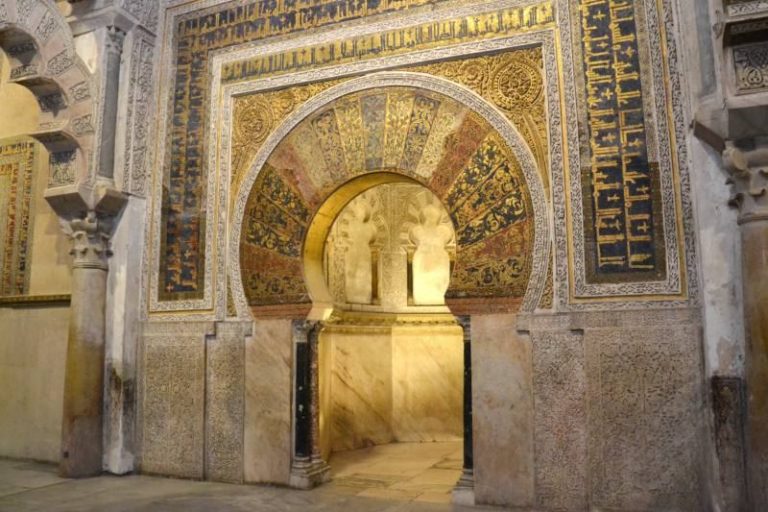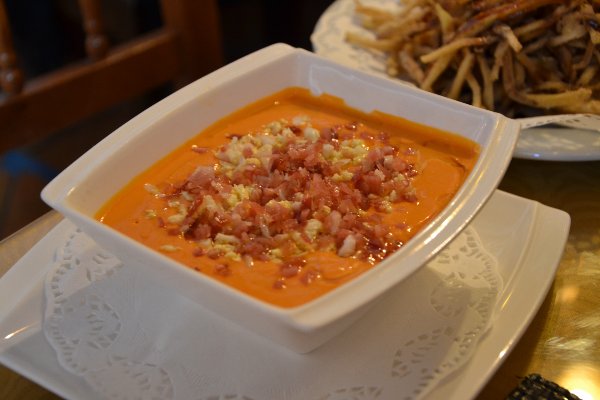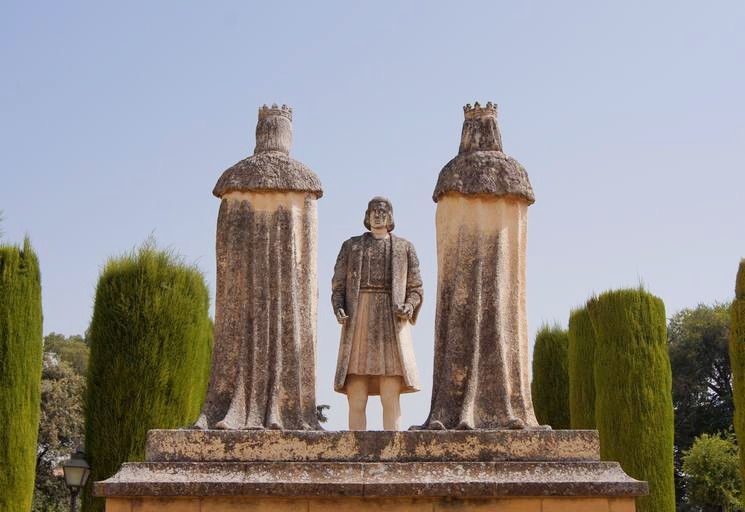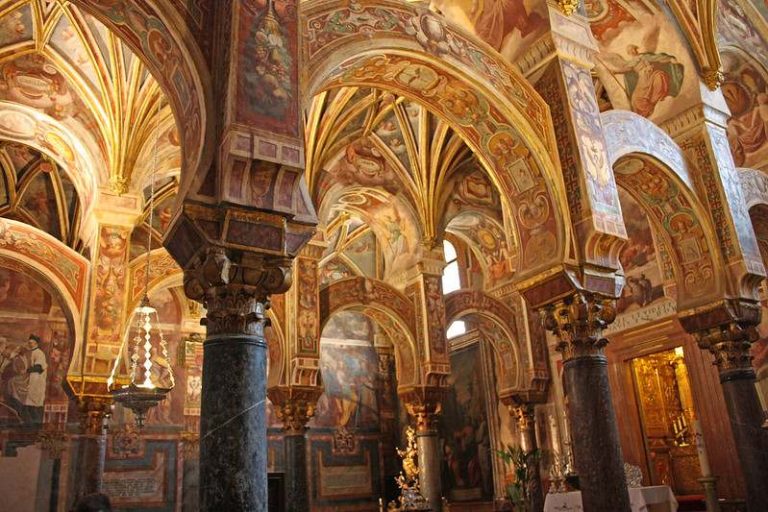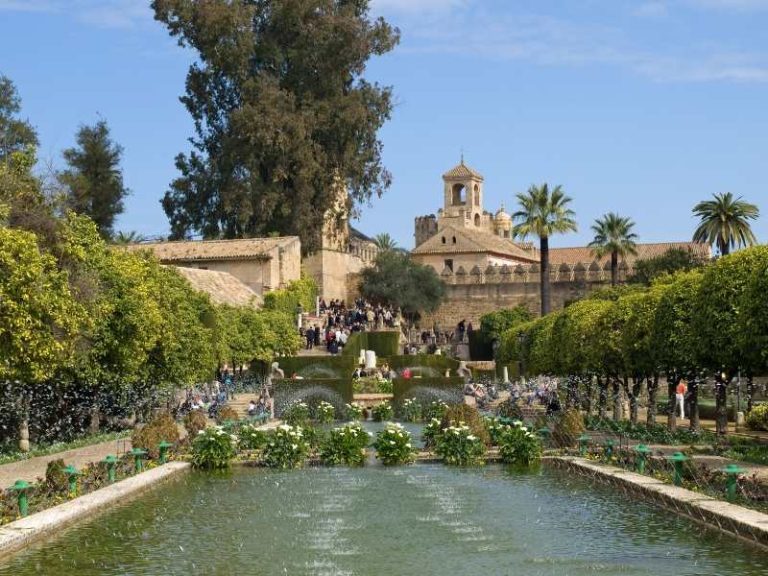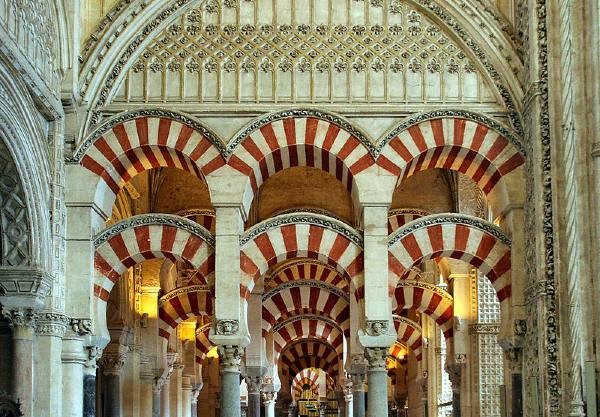Cordoba Useful Information
Cordoba is the eleventh largest city in Spain and ranks third in Andalucía (South Spain) after Seville and Malaga. The city has a population of 328,000 inhabitants and the region reaches about 850,000 if counting all the inhabitants living in the province.
Over the years, the city has developed enormously, and modern infrastructures have been built to adapt Cordoba to the twenty-first century, including the high speed train, bike lanes, modern urban buses, a new beltway, wide boulevards, etc.
However, if there is one thing the city can be proud of, it is its enormous historical legacy. If you visit Cordoba you will enjoy fantastic Roman ruins, ancient Arab remains, the beautiful old Jewish quarter and gorgeous catholic churches in a wonderful journey to the past.
In this section you will find all kinds of practical information to visit the city and enjoy your stay to the fullest.
Use the icons to scroll through the content
Climate
In general Cordoba enjoys excellent weather during almost all year. However, it is convenient to consider certain aspects. The geographical position of Cordoba (at the southern tip of Europe, within the valley of the River Guadalquivir and far away from the sea) significantly determines the climate.
Winters are mild with temperatures hovering around 8-10°C (50°F). However, frosts are common during the night.
By contrast, the summer is extremely hot and dry with temperatures above 40°C (105°F).
Without any doubt, the best time to visit Cordoba, and of course the most frequented by tourists, it is spring. The city lives an explosion of scents and colors. The streets are filled with flowers and the fragrance fills the whole city (orange blossom, jasmine, roses, etc.). Three popular local festivities also coincide with the spring: The Fair of Our Lady of Health, the Festival of Los Patios and the Crosses of May. Finally, fall is also mild, alternating sunny and pleasant days (20°C – 68°F approx.) with rainy and cloudy days.
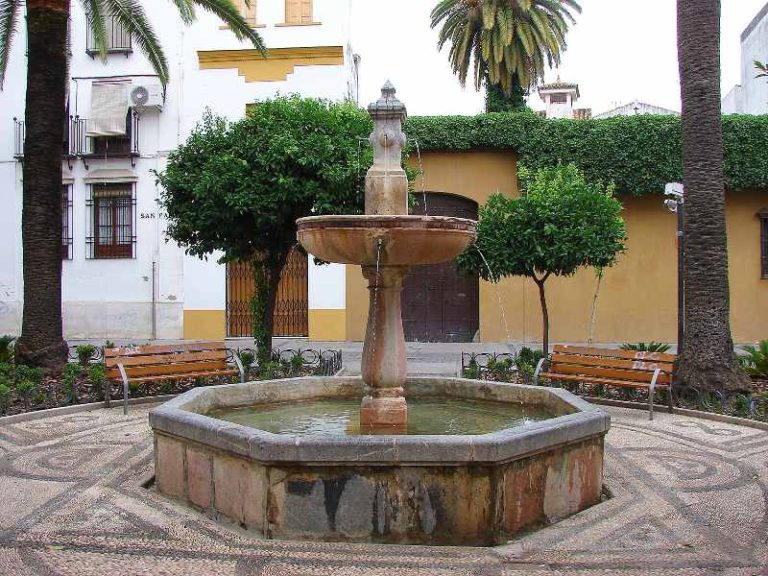
Opening Hours
Opening hours in Spain are long compared to other European countries. Generally, small businesses open their doors at 9:30am / 10am until 1:30pm / 2pm when they take a break for lunch and “siesta”. Then, they return to work at 5pm and stay open until 8:30pm / 9pm.
On Saturday afternoon and Sunday most small shops close.
Shopping centers and international fashion stores are open non-stop from 10am to 10pm
Prices
Cordoba is not a particularly expensive city, especially if we compare it with other Spanish cities such as Madrid, San Sebastián or Barcelona.
Hotels increase their prices during the high season (April, May, June, September and October). However, the price of restaurants is relatively affordable; you can enjoy a pleasant dinner in a medium price range restaurant for approximately €25 per person.
A hotel night (4 stars) in high season is usually around 120-150€. While in low season (January, February and November) the price drops to €100.
Examples of prices of some basic products:
Food and drinks:
- Coffee with milk: 1,20€
- Beer: 1,50€ this price is based on a “caña” (20 cl. / 6,75 oz) which is the most common way of drinking beer in Spain
- Big Mac (McDonald ’s): 4€
- 1 liter (0.26 gal) of milk in a supermarket: 0,80€
Transportation:
- Single bus ticket: 1,30€
- Taxi from the train station to the Old Town: 8€ approx.
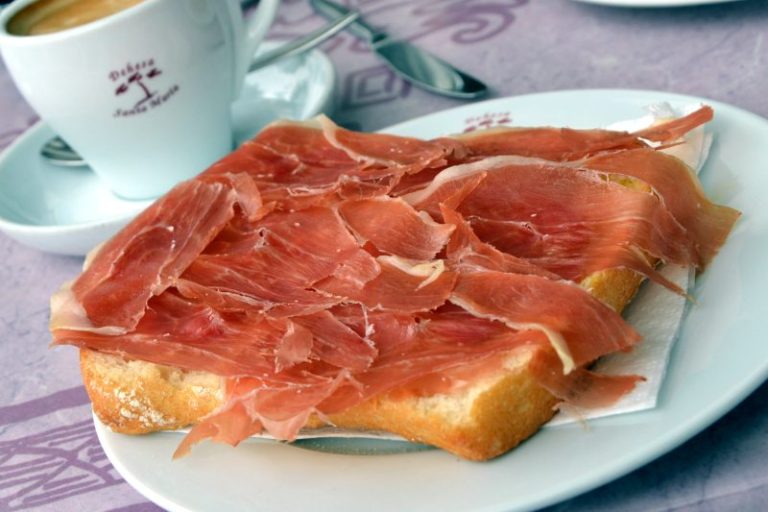
Tips
In Spain it is not usual to tip in restaurants or in taxis. However, when someone leaves a tip, waiters will appreciate it very much. If you are happy with the service, you can leave between 5%-10% of the total cost. Your waiter will be happy for that.
Taxes
Spain has one of the highest consumption taxes in the European Union. Taxes were previously lower but the financial crisis in 2008, which wreaked havoc in Spain, forced the government to raise taxes considerably
- Shopping: 21%
- Hotels: 10%
- Restaurants: 10%
- Taxis: 10%
Economic Data:
Unfortunately, the South of Spain is one of the regions of Europe with the worst economic data. For decades unemployment has really been extremely high and expectations for finding work are difficult.
- Unemployment rate: 20% (2019)
- Youth unemployment rate (under 25 years old): 30% (2019)
- Average annual wage: 14,000€ (after taxes)
- Average price of a rental: 600€
Although these economic data do not reflect a reality. The underground economy is deeply rooted in this part of Spain.
The main economic sectors of the city of Cordoba are tourism, goldsmithing and the cultivation and export of olive oil and wine.
How to Pay
Cordoba as any European city is fully adapted to all kind of payments: credit cards or cash. You may pay with your Credir crad almost everywhere in the historical center, however some businesses may require a minimum amount (usually about 6-10€), so it is always better to have some cash for smaller payments. ATMs are avilable all over as well.
Cash points
Don´t worry if you need to draw money from an ATM: Spain is one of the European countries with the highest density of ATMs per square meter, which is a tremendous convenience for the Spanish people and visitors.
When using an ATM, please note that there are not any suspicious people around. If possible, use the ATM inside the bank. If you need to get money urgently, you can use Western Union which offers money transfer service (+34900633633).
Credit Cards
In Spain you will not need to carry large amounts of cash as there are many ATMs everywhere and most shops accept credit cards. The most common credit cards in Spain are VISA and MasterCard: the major banks give cash using these credit cards.
Please, take into consideration that American Express cards are not accepted eveywhere, it is rather an axception. So please have another card (Visa or MasterCard) available.
If you have more than one credit card, do not bring them all together; try to take them separately. If your credit card is stolen you should cancel it as soon as possible by calling VISA (+34900991124) MasterCard (+34900 97 12 31) or American Express (+34902 37 56 37) and report the loss to the nearest Police Station.
Bank Holidays in Cordoba
Before traveling to Cordoba, it is always a good idea to check this list of bank holidays. In this way, you will be able to know if the museums and attractions of the city are closed or if you can enjoy some local festival.
Like all cities in Spain, Cordoba has 14 public holidays a year:
- January 1st (bank holiday for the entire nation)
- January 6th: Epiphany or “The Three Wise Men” (bank holiday for the entire nation)
- February 28th: Andalucia Day (bank holiday in Andalucia)
- Holy Thursday and Good Friday (bank holiday for the entire nation)
- May 1st: Labor Day (bank holiday for the entire nation)
- Second and third week of May: Festival of the Patios (local bank holiday)
- Last week of May: Our Lady of La Salud Festivity (local bank holiday)
- August 15th: Assumption of Mary (bank holiday for the entire nation)
- September 8th: Our Lady of La Fuensanta, patron saint of the city (local bank holiday)
- October 12th: Hispanic Day (bank holiday for the entire nation)
- October 24th: Festivity of Saint Raphael (local bank holiday)
- December 6th: Constitution Day in Spain (bank holiday for the entire nation)
- December 8th: The Day of the Immaculate Conception (bank holiday for the entire nation)
- December 25th: Christmas (bank holiday for the entire nation)
Read more about Local Festivities in Cordoba (especially in May) right now and enjoy Cordoba as a local!!
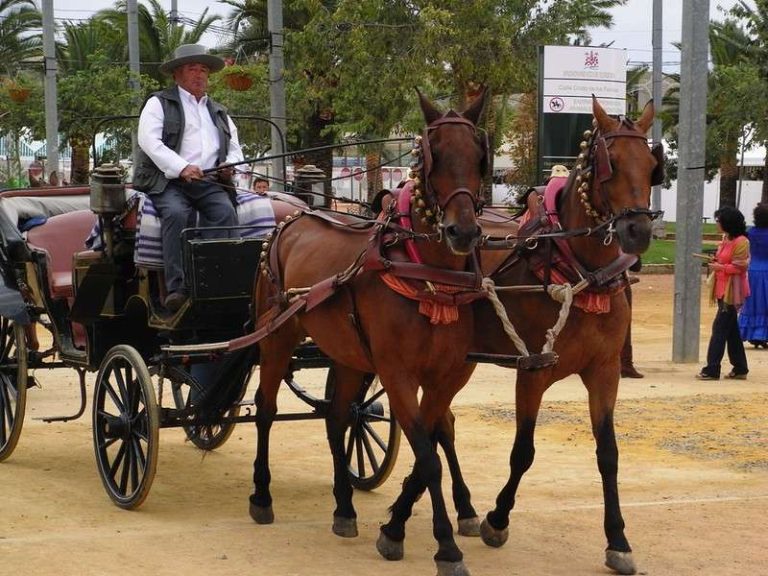
Postal Service
The Spanish Postal Service has improved quickly in recent years, matching the Postal Service of other European countries. Post offices are open from 8am to 9pm Monday to Friday and from 9am to 5pm on Saturday.
From Post offices you can send registered letters, telegrams and postcards. Priority mail (“urgente” in Spanish) ensures speedier and safer arrival. To send or receive money you should use an urgent Money Order (“Giro telegrafico urgente” in Spanish).
Packages must be properly wrapped and sealed to be sent. The price depends on weight and destination. Postage rates for sending ordinary mail depend on destination: European Union countries, rest of Europe, America and rest of World. There are also mailboxes through the city. Mailboxes are large and yellow.
SEUR is the main courier service in Spain (tel: +34 902101010). If you prefer other international companies such as FedEx, DHL or UPS are also present in Spain.
Persons with disabilities
The city is fully adapted for people with disabilities: offices, restaurants, hotels, museum, etc. have facilities designed to accommodate people with special needs. Low-floor buses allow easy access for wheelchair users and elderly citizens.
If you need a wheelchair accessible TAXI, call to TAXI Call Center (tel: +34 957764444).
Some traffic lights in downtown make a sound to alert blind people when they can cross the street.
During your visit to the city, probably you have seen some small kiosks under the name of ONCE. This company sells lottery and offer work to disabled people, trying to integrate them into society.
Safety& Pick pockets in Cordoba
Cordoba is a city not particularly dangerous, but you can always have a bad time if you don’t take some basic precautions: watch your bags, camera, passport, etc. especially near the Mosque or the Roman Bridge. Near the Mosque one can see gypsy women, who offer small branches of rosemary or try to read the future by your hand and then ask you for money. Never take the branch or let they hold your hand. Just ignore them.
The police normally check the area to shoo them. If, unfortunately, you have been mugged, call 091 and then cancel all your Credit Cards. The nearest police station to the historic center is located on Calle Campo Madre de Dios, 11, 14010 s/n (tel: 957 59 45 00) which is about 15 minutes walking from the Mosque- Cathedral or 5 minutes by taxi.
Emergencies & Pharmacies in Cordoba
Phone number for all emergency services is 112, the same as in others European Union countries. Depending on the nature of your problem, you should indicate the department: Police, Fire Department or Emergency Medical Service.
The pharmacist can help you with minor medical problems without having to visit the doctor. Pharmacies are open from Monday to Saturday during business hours (until 9:00 pm). Pharmacies on duty (“Farmacia de Guardia” in Spanish), open 24 hours and are posted on the door of all the other pharmacies.
Personal Space & Communication Skills
In Spain personal space is much smaller than in other European countries such as Germany, United Kingdom or France: when two people hold a conversation, they speak close to each other. You should not worry about that; it is quite normal in Spain.
At the same time, Spaniards talk much with their hands and speak in a high tone voice. This should not be misinterpreted by tourists; it is a cultural thing and they have no intention of offending you.
Usually, Spaniards greet in a much more tactile manner than in other countries: men embrace and pat each other on the shoulder, and women kiss each other twice on the cheeks to say hello.
Public Toilets
Some streets around the city center have public toilets available to all citizens by paying a small fee.
These toilets look like small cabins. When you pay the fee, you can get in and the door closes automatically. If the user does not open the door manually, it will open automatically after a few minutes.
Alternatively, you can go to a bar, although you should ask for a small drink to use the toilet. Sometimes the door is locked, and you must ask the waiter for the key

